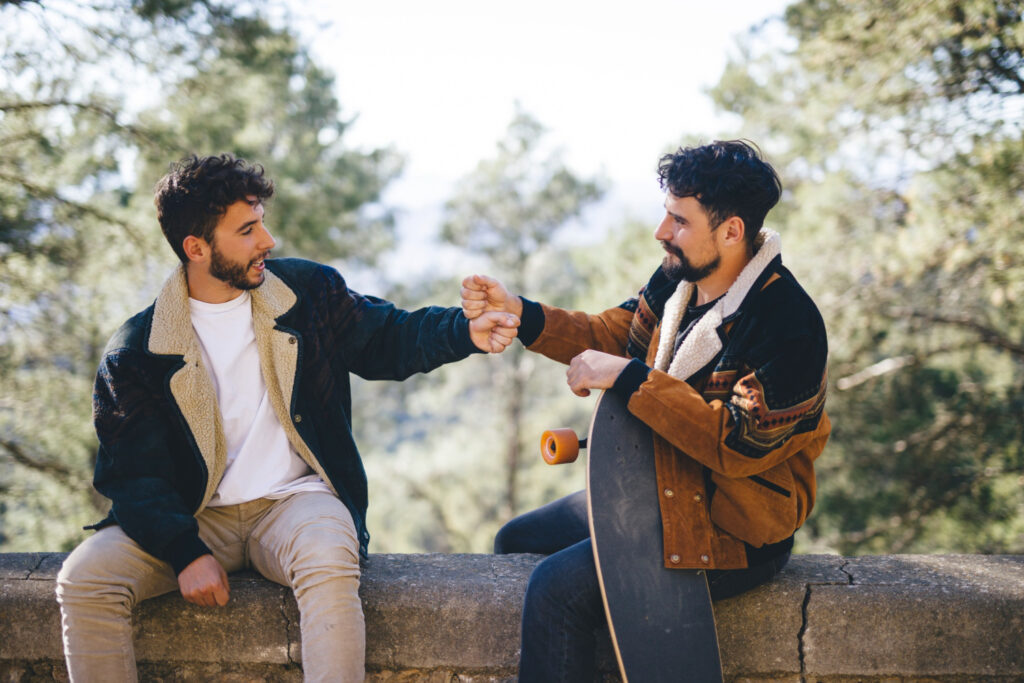Navigating grief is a journey that is both deeply personal and universally human. It is a path that can feel treacherous and unwelcoming, yet it is one that many of us will walk at some point in our lives. The loss of a legacy friend—someone who has been a part of your life’s very fabric, whose history is intertwined with your own—can be particularly devastating. Their absence leaves a void that seems impossible to fill. In this article, I share my own experience with loss and the transformative lessons I learned along the way.
Introduction to Losing a Legacy Friend
The day I lost my legacy friend, the world as I knew it crumbled. The news came like a sudden storm, unexpected and unrelenting. I was faced with a reality where the laughter, the shared secrets, and the comforting presence of my friend were abruptly gone. The permanence of this loss was overwhelming. This was a person who had been with me through life’s highs and lows, someone whose influence had helped shape the person I had become.
Losing a legacy friend with whom you have built a lifetime of memories is a unique kind of heartache. Their absence is felt in every mundane moment, in every celebration they miss, and in the silence of conversations that will never happen again. It is an experience that challenges your understanding of life and your place within it.
Facing this loss, I found myself on a journey through grief, a complex process that demanded patience, self-compassion, and a willingness to embrace uncomfortable truths. It was during this time that I discovered the transformative power that lies within the heart of grief.
Understanding Grief and Its Stages
Grief is not a linear experience; it is a multifaceted and deeply individual process. It’s important to understand that grief has many faces and comes in waves, sometimes when you least expect it. The stages of grief, as outlined by Elisabeth Kübler-Ross, include denial, anger, bargaining, depression, and acceptance. These stages are not strict steps but rather a framework that can help us make sense of our feelings.
In the wake of my friend’s passing, I found myself oscillating between these stages. There were days when I refused to believe they were gone, and other days when anger bubbled up inside me with no clear direction. I bargained with fate, hoping for a different outcome, and felt the weight of depression in their absence. Finally, acceptance began to take root, not as a resolution, but as a gradual acknowledgment of my new reality.

Understanding these stages helped me realize that my feelings were normal and that grief was not a sign of weakness but a testament to the depth of my connection with my friend. It gave me permission to experience grief in my own way and at my own pace.
Lesson 1: Embracing the Power of Memories
Amidst the pain of loss, I discovered the first transformative lesson: the power of memories. Memories are the legacy left behind by those we have lost. They are the moments captured in the laughter shared over a cup of coffee, the adventures that turned into stories retold time and again, and the quiet comfort of knowing someone understood you without words.
I learned to find solace in these memories, allowing them to fill the space of absence with warmth and presence. At first, the memories brought tears, but with time, they became a source of comfort. I found joy in recounting stories of our past, in reliving the moments that showcased the essence of my friend’s spirit.
By embracing memories, I kept the connection to my friend alive. I realized that while they may no longer be present physically, the impact they had on my life continued to resonate through the memories we had created together.
Lesson 2: Finding Solace in Community and Support
The second lesson I learned was the importance of community and support. After my friend’s passing, I felt isolated in my grief, as if I were the only one suffering this loss. But as I reached out to others who knew and loved my friend, I found a shared sense of mourning that brought us together.
I discovered that there is strength in unity, in the collective sharing of grief and memories. Friends, family, and even acquaintances who had been touched by my legacy friend’s life came together to offer support and understanding. We shared stories, offered shoulders to cry on, and found laughter amidst the tears. This sense of community provided a cushion for the raw edges of my grief.
Additionally, support came in unexpected forms, from colleagues who gave me space to grieve to strangers who shared their own stories of loss. This support became a lifeline, reminding me that I was not alone in my journey through grief.
Lesson 3: Learning to Let Go and Accept Change
The third lesson was perhaps the most challenging: learning to let go and accept change. Letting go did not mean forgetting my friend or the love we shared. Rather, it meant recognizing that life was moving forward, and I had to find a way to move with it.
Accepting change is an integral part of the grieving process. It requires acknowledging that the absence left by my friend’s passing was permanent, but it also paved the way for new experiences and relationships. I learned to make space for these changes without guilt, understanding that embracing the future did not diminish the past.
This lesson taught me resilience. It showed me how to rebuild my life in a way that honored my friend’s memory while allowing myself to grow and change. It was a delicate balance, one that took time and patience to achieve.
Lesson 4: Discovering Personal Growth Through Loss
In the wake of my friend’s absence, I found unexpected growth. This was my fourth lesson: discovering personal growth through loss. Grieving had pushed me out of my comfort zone and forced me to confront aspects of myself that I had previously ignored.
I learned that grief can act as a catalyst for self-reflection. It invited me to reevaluate my priorities, my relationships, and my own mortality. I found a deeper appreciation for life and a renewed sense of purpose. It was as if my friend’s passing had bestowed upon me a clearer vision of what truly mattered.
This growth was not without its growing pains. It required me to be honest with myself, to face my vulnerabilities, and to embrace change. But through this process, I emerged stronger, more empathetic, and more connected to the world around me.
Lesson 5: Honoring the Legacy and Keeping Their Memory Alive
The fifth and final lesson I learned was about honoring the legacy of my friend and keeping their memory alive. I wanted to ensure that the impact my friend had on my life, and the lives of others, would not be forgotten.
To honor their legacy, I found ways to incorporate their values and passions into my own life. I volunteered for causes they cared about, supported projects they were involved in, and found ways to keep their spirit present in my daily routines.
Moreover, I realized that keeping their memory alive was not just about looking back but also about carrying their essence forward. I sought to embody the best qualities of my friend, to live my life in a way that reflected the love and joy we had shared. Their memory became a guiding force, inspiring me to live with intention and compassion.
Coping Mechanisms for Navigating Grief
Navigating grief is a deeply personal journey, and finding coping mechanisms that work for you is crucial. Throughout my own experience, I developed strategies that helped me manage the rollercoaster of emotions that accompanied my loss.
Firstly, I learned the importance of self-care. This meant allowing myself to feel my feelings without judgment, taking breaks when I needed them, and engaging in activities that brought me peace, such as walking in nature, journaling, or practicing mindfulness.
Secondly, I found solace in creative expression. Whether it was writing poetry, painting, or simply listening to music that resonated with my mood, creative outlets provided a way to process my emotions in a tangible form.
Lastly, I embraced the practice of gratitude. Even on the hardest days, I made a point to acknowledge the things I was thankful for, including the time I had spent with my friend. Gratitude helped me find light in the darkness and kept me grounded in the present moment.
Seeking Professional Help and Resources for Grief Support
There comes a point in the grief journey when you may realize that you need more support than friends and family can provide. Seeking professional help was a significant step for me in navigating my grief. Therapists and counselors who specialize in grief can offer a safe space to express your feelings and provide tools to help you cope with your loss.
Additionally, there are numerous resources available for those dealing with grief. Support groups can connect you with others who understand what you’re going through, while books and online materials can offer guidance and comfort.
Investing in professional help and exploring resources can make a profound difference in your healing process. It’s a sign of strength to acknowledge when you need support and to take steps to get it.
Conclusion: Embracing the Transformative Power of Loss
In conclusion, losing a legacy friend is a profound experience that can alter the course of your life. It is a journey through grief that is fraught with pain, but also ripe with opportunities for transformation. The lessons I learned—embracing the power of memories, finding solace in community, learning to let go, discovering personal growth, and honoring the legacy—have reshaped my understanding of life and loss.
Navigating grief is not about reaching a destination where the pain is gone. It is about learning to carry the loss with you in a way that allows you to continue living fully and meaningfully. It is about finding the transformative power within the heart of grief and allowing it to guide you toward new beginnings. Loss is an inevitable part of the human experience, but it is also a testament to our capacity to love deeply. By embracing the transformative power of loss, we open ourselves up to the full spectrum of life’s experiences, finding beauty even in the depths of sorrow.
Related Post
Building Stronger Bonds: Understanding the Signs of a Healthy Friendship
‘I Have No Friends’: Practical Steps to Build Meaningful Relationships
















